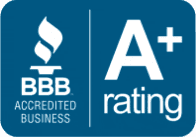Have you been ARRESTED or contacted by the Police, a Detective, FBI, or CPS?
DUI Defense Attorney
Los Angeles DUI Defense Lawyer
(California Vehicle Code sections 23136 V.C., 23140 V.C., 23152(a) & (b) V.C., and 23612 V.C.)
If you are pulled over for driving while under the influence of alcohol or drugs (legal or illegal, prescription or non-prescription), you can be charged with a DUI. These charges vary widely – from a simple first-time DUI following a routine traffic stop to vehicular manslaughter.
In other words, even if you had only taken cough syrup for a bad cold, for example, all that is required for a conviction is that your driving was impaired to the degree that it was unsafe for you to operate a vehicle safely.
California DUI
In California, if you are an adult, the legal limit is .08% blood alcohol concentration, a.k.a. blood alcohol content (BAC). However, if you are underage, particularly if you are a juvenile, any alcohol in your system would justify a DUI conviction.
An arrest will almost certainly follow a failed field sobriety test (FST) after you are pulled over for suspicion of driving while impaired. At that point, you will be given a breathalyzer (breath test), taken to the nearest police or sheriff’s station (depending on where you are and who pulls you over), booked, photographed, and maybe have your blood drawn there.
Breathalyzer
You should be aware that if you refuse to do the breath test after you are pulled over, you will be automatically arrested so long as the officer can claim that he or she had probable cause to suspect you were driving above the legal limit.
You will then be forced to perform the breathalyzer at the local police, sheriff’s, or CHP station, or, again, even be forced to give a blood sample. It bears repeating that these tests are mandatory in the face of a refusal because, under California law, your consent to these tests is implied as part of your driving privileges.
Other DUI’s
A DUI crime will also be charged if you’re high on marijuana, even though recreational use is now legal for adults at least twenty-one years old.
DUI’s can be charged as misdemeanors or felonies, depending on a variety of factors, including whether this is your first DUI and whether any injuries resulted in the event of a collision.
Please note that in addition to criminal penalties, you will also face suspension or permanent revocation of your driver’s license. Suspension is automatic if you refuse blood-alcohol-level testing. For example, in January 2009, actor Shia LaBeouf lost his license for an entire year after refusing to submit to testing after he was involved in a car accident the previous year.
Criminal Defense
Menu










Types of DUI Misdemeanors
– During the second week of January 1994, music mogul Dr. Dre (whose real name is Andre Young) led police on a high-speed chase (exceeding ninety miles per hour) through Beverly Hills and Westwood. An LAPD helicopter even joined the chase. After he finally stopped his 1987 Ferrari Testarossa, he blew twice the legal limit, 0.16 BAC. Although he was initially charged with a felony DUI, he ultimately pled out to a misdemeanor. However, because he had been on probation for a 1993 battery conviction at the time, he was sentenced to eight months in jail, a $1,053 fine, and substance abuse counseling.
– In late June 1996, actor Robert Downey Jr. was pulled over along the Malibu stretch of Pacific Coast Highway for allegedly speeding and driving while impaired. Earlier, he had reportedly been snorting cocaine, smoking crack, and “chasing the dragon” (inhaling the fumes of Mexican black tar heroin from a tinfoil receptacle) and had been found to possess between .32 and 1.49 grams of each substance. In September of that year, he pleaded no contest to felony drug possession, as well as to misdemeanor DUI.
– In the early morning of June 10, 2018, actor Vince Vaughan (Old School, Wedding Crashers) was stopped by police at a DUI checkpoint in Manhattan Beach (the South Bay). Vaughn allegedly refused to comply with the officer’s demands, including submitting to an FST. As a result, Vaughan was arrested and charged with three misdemeanors: driving while intoxicated (under the influence of alcohol), driving with a BAC of at least .08%, and failure to comply with a police officer. Vaughn’s passenger was cited for being drunk in public and released.
– In mid-April 2017, actor Cole Hauser (2 Fast 2 Furious) was arrested and charged with a DUI after police allegedly spotted him driving erratically on an L.A. freeway. Following the administration of an FST, Hauser was taken into custody. According to the arresting officer, Hauser’s BAC was above .08. He ultimately pled no contest. He was sentenced to 36 months of informal probation, ten days of volunteer work on behalf of the California Department of Transportation, and nine months of alcohol counseling. In addition, he was required by the California Department of Motor Vehicles to breathe into an ignition interlock device before starting his vehicle to confirm that he had not recently consumed alcohol.
– In late May 2007, actress Lyndsay Lohan (Freaky Friday) was arrested following a vehicle collision in Beverly Hills on three misdemeanor charges: driving while intoxicated, possession of cocaine, and hit-and-run. Two months later, she was again arrested for a DUI in Santa Monica, as well as for three additional misdemeanors: once again for allegedly possessing cocaine, transporting cocaine into jail, and driving with a suspended license. Two months after that, she pled no contest to a single DUI, as well as to reckless driving (both misdemeanors). She was sentenced to one day in jail, in-patient rehabilitation, three years probation, eighteen months of alcohol counseling, and ten days of volunteer work.
Types of DUI Felonies
– In the early hours of December 8, 1984, Vince Neil, the lead singer of the hard rock band Mötley Crüe, drove his Corvette to a liquor store not far from his house in Redondo Beach. Riding shotgun was Nicholas Dingley, the drummer for Hanoi Rocks, who had arrived from England only the day before. Neil was allegedly highly intoxicated, crashed his car into an oncoming car, and killed Dingley. The two occupants in the oncoming vehicle were severely injured and suffered permanent brain damage. Neil was charged with vehicular manslaughter & drunk driving (his BAC was 0.17, or 70% higher than the legal limit back then of 0.10) and eventually pled to a felony DUI. He ultimately served fifteen days in jail, completed five years’ probation and 200 hours of volunteer work, and paid $2.6 million in restitution.
– On February 1, 2020, Burbank PD arrested rapper PnB Rock (born Rakim Allen) for suspicion of driving under the influence with property damage and injury (a felony), as well as reckless driving (a misdemeanor). According to police, several patrol officers witnessed Allen racing his German sports sedan in Burbank against another individual driving a British supercar in an illegal drag race that allegedly resulted in Allen crashing into three parked vehicles. (The other driver reportedly sped away from the scene.) TMZ reported that a female passenger in Allen’s car had sustained minor injuries.
– In mid-July 2019, South San Francisco PD arrested Daly City resident Orlando B. DeLeon for suspicion of driving while intoxicated after DeLeon was allegedly speeding on a suspended license. Since he reportedly had seven prior DUI convictions and was facing a possible eighth DUI conviction from a February 2019 arrest, DeLeon was now being charged with a felony in this latest incident by the San Mateo County DA’s Office. According to the DA, this time, DeLeon’s blood alcohol content was more than three times the legal limit. If convicted of even one of the latest charges, DeLeon will likely be sentenced to prison.
How to Defend Against a DUI Charge
Assuming you were given and allegedly failed an FST, the arresting officer’s bodycam and patrol vehicle dashcam could bolster a defense that you did not forget the test or that it was improperly administered. For example, you might have been experiencing physical problems at the time of the trial, such as muscle spasms in your legs that prevented you from passing the roadside test.
Or you might be able to counter the allegation that you had been drinking by proving you had the nasty flu, for example, that made it appear as if you had consumed alcohol (such as bloodshot eyes, slurred speech, weaving, driving slowly, etc.).
The chain of custody in the transportation and delivery of the blood and alcohol samples may have also been contaminated or otherwise negated the test results, so that’s another angle of attack we would take if merited.
Alternatively, the officer may have fabricated the factors that supposedly justified the reasonable suspicion of apparent intoxication that the law requires to allow them to force you to submit to an FST. For example, perhaps the officer only watched you for several seconds before pulling you over and, therefore, could not possibly have had time to form the requisite reasonable suspicion, much less probable cause, to pull you over. Or maybe the police stop occurred because you were racially profiled or as the result of an illegal checkpoint. In other words, you would be challenging the Constitutionality and legality of this initial stop.
Another effective defense is based on the fact that immediately after a person consumes one or more alcoholic beverages, their BAC will temporarily spike before dropping to its accurate level. However, this spike would typically occur when a suspect was taken to and booked at the local police, sheriff, or CHP station. In other words, the driver could have been technically below the limit when they failed the FST but could have exceeded it when the breathalyzer test was administered there. Thus, if you had downed two glasses of beer right before the stop, your body might not have absorbed the alcohol sufficiently to exceed the legal .08 limit.
Sometimes you might even be able to prove you weren’t driving the car or that someone spiked your drink or otherwise involuntarily inebriated you without your knowledge.
See Calif. Vehicle C. sections 23152(a)&(b) V.C., and CALCRIM sections 2110 & 2111.
Sentences Handed Down for DUI Convictions
If you have been convicted of one or more DUIs in the previous ten years (referred to as the “look-back period”), your sentence on your new DUI conviction will be far harsher, and, in the case of at least a fourth conviction, you will automatically be sentenced to a correctional facility.
But even if this was your first and only drunk driving conviction, if you injured someone, you will be sentenced as a felon and face substantial jail if not prison time. By contrast, if you kill somebody, you will be charged with vehicular manslaughter or even second-degree murder with a maximum sixteen-year prison term (excluding any additional sentencing enhancements).
If this is your first DUI, you won’t do more than six months in county jail if you are required to serve some jail time. A second or third-time DUI within the statutory lookback period, as well as a first-time misdemeanor DUI with injury, will get you up to a year in jail.
Felony DUI with an injury can land you in state prison for sixteen, twenty-four, or thirty-six months, depending on the specifics of your case. But, again, with a felony DUI resulting in injury, you are looking at anywhere from 16 months to 16 years.
Probationary terms of thirty-six months and sixty months are typical for misdemeanor and felony DUIs, respectively.
In addition, you will be fined up to one thousand dollars and be forced to attend DUI school and likely Alcoholics Anonymous as well.
Community service and victim restitution may also be ordered.
Calif. Vehicle Code section 23153 V.C.
DMV Consequences for DUI Arrests/Convictions
As far as the Department of Motor Vehicles is concerned, your license can be suspended for up to ten months on a first-time DUI; twenty-four months for a second offense; thirty-six months on a third conviction or for a misdemeanor injury DUI; forty-eight months on a fourth conviction or felony no-injury DUI; and sixty months on felony DUI with injury.
In situations where you are allowed to keep your driver’s license, including on a regional basis, you may be forced to have a device installed in your car that requires you to provide a BAC breath test before it starts.
But if you refused to take a breathalyzer test after you were pulled over, you will automatically have your license suspended for twelve months.
Our Approach to Fighting DUI Charges
These cases all come down to the alleged blood alcohol concentration of the defendant, but a surprising percentage of DUI prosecutions result from faulty testing. This means that the breath and blood tests were improperly conducted, either because the technician was poorly trained or simply incompetent, or the testing devices themselves were faulty (i.e., improperly maintained or calibrated). Sometimes the PAS (Preliminary Alcohol Screening) machine may even give a false positive when, in fact, you hadn’t even been drinking (for example, you were driving recklessly, but something you ate or drank triggered the false positive results).
We also work closely with experts who can attack the technician’s training, experience, and knowledge or support a contention that the devices were faulty. For example, if necessary, we’ll file a motion for a blood split, which, if granted, allows our expert to test the blood sample tested by the prosecution’s expert. Other experts we work with are highly skilled at presenting a rising blood alcohol defense.
Another top professional we work with is a highly reputable placement counselor whose sole job is to find – sometimes immediately – in-patient rehabilitation programs that not only help our clients deal with alcohol and drug problems but also prove to the prosecutor and the court that you are taking responsibility for your actions and that you are committed to getting clean and sober.
We will also represent you throughout the DMV administrative hearings to save your license or, at the very least, will hopefully be able to get you a restricted license that allows you to travel to and from work and school, for example.
In some instances where the defendant’s BAC is close to the legal limit and where no physical harm came to anyone, we will work closely with the client to present a mitigation package to the prosecutor-in-charge to plead out to a “wet reckless” or “dry reckless.” We will push the DA Supervisor to get you a highly favorable disposition if necessary.
Some Previous DUI Cases of the Los Angeles Defense Attorney Law Firm:
Blew 150% above .08 – jail & loss of military service – reduced to Dry Reckless, able to enlist
People v. L.F.: When our client was arrested for a misdemeanor DUI, he blew into the breathalyzer a BAC of .20, which is 150% above the legal limit of .08%. Aside from the extremely high BAC, this case presented a particular challenge because he was hoping to enlist in the Armed Forces, which would be impossible with a drunk-driving conviction (including even for a misdemeanor DUI). The first thing we did when we took the case was to file a motion to exclude the evidence of the FST and breathalyzer based on the fact that the traffic stop had been invalid, meaning that the police had failed to follow proper procedures. After reading our motion, and before the judge even ruled on it, the Deputy City Attorney in charge of the case made an excellent offer, which we accepted: reduction to a Dry Reckless, a low monetary fine, and sixty A.A. meetings. As a result, our client successfully enlisted in the military.
Blew 50% above .08 – jail & loss of nursing license – reduced to Wet Reckless, kept the appointment.
People v. J.C.: Our client was stopped and pulled over in Inglewood at an LAPD checkpoint, where she blew a .12 BAC – fifty percent above the legal limit. As a Registered Nurse, she also stood to lose her medical license with a drunk-driving conviction on her record. We tried to negotiate a favorable plea that would allow her to keep her job and career, but the Deputy DA in charge of the case wouldn’t budge. So we then went directly to the DA Supervisor, who empathized with our client’s plight. As a result, we were able to get a reduction to a Wet Reckless, which did not require our client to report what is essentially just a traffic violation to her medical board. Thus, she was able to continue working as an R.N.
Lawyer, DUI w/ Refusal, cocaine – jail & disbarment – reduced to standard DUI, kept the license.
People v. J.B.: Our client was a licensed attorney with the California State Bar when he was pulled over and charged with a DUI. But he panicked after the traffic stop and refused to blow into the breathalyzer. On top of that, when the arresting officer searched him, they found a personal amount of cocaine. As a result, he was charged with a DUI with Refusal and possession of cocaine (a felony) at the LAX courthouse. Thus, aside from going to jail for many months, he was also looking at the permanent revocation of his law license. Fortunately, we obtained a great disposition: dismissal of the Refusal charge, reduction to a standard DUI, and no jail time. Regarding cocaine possession, he ended up with informal diversion, which included forty-five A.A. meetings. After completing the pursuit, the possession charge was dismissed entirely, and our client continued practicing law.
Foreign tourist, DUI, felony cocaine possession – result: DEJ & dismissal
People v. J.G.: Our client was a tourist from another continent at the time. He was pulled over for suspicion of drunk driving in Beverly Hills and found to have cocaine. As a result, he was arrested and charged with felony possession. According to all the other defense lawyers he consulted with before hiring us, he would have to remain in the U.S. for twelve months to complete a DEJ (Deferred Entry of Judgment) program, which, if completed, would result in a dismissal. This posed a significant problem for him (and a challenge to us) because he only had thirty days remaining on his tourist visa. Fortunately, we were able to work out a special deal with the DA’s Office – our client received informal diversion, thirty Narcotics Anonymous meetings in three weeks, and a small fine. At the end of the three weeks, we could prove to the DA that he had completed all the meetings, so all charges were dismissed.
DUI w/ property damage – C.A. seeking jail time – deal: no jail, only A.A. & volunteer work
People v. A.S.: Our client had been involved in a traffic accident while driving under the influence of alcohol. As a result, he was charged with a misdemeanor – however, if the other driver had been injured, our client would have been accused of a felony. The City Attorney’s Office wanted our client to serve time in the county jail for what they initially believed was a serious misdemeanor. However, after the client hired us on a Pre-File basis, we put together a mitigation package, which we presented to the Deputy CA prosecuting the case. We worked out an excellent deal with zero incarceration, some community service, A.A. meetings, and a nominal fine.
Felony DUI w/ injury – DA demanding prison – deal: no prison or jail, only volunteer work
People v. A.R.: Our client had been charged with a felony DUI after injuring another person during a vehicle collision in the South Bay. The prosecuting attorney at the DA’s Office initially insisted that any plea deal include prison time (and not just county jail). We successfully negotiated an agreement that involved zero time in prison or jail, with the only punishment being community service.